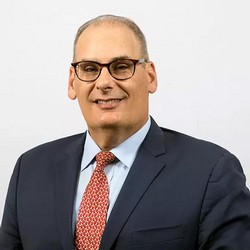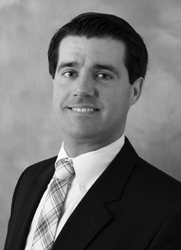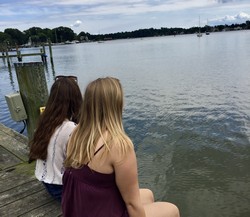Monmouth University’s Institute for Global Understanding (IGU) enhances cultural education and citizenship through academic and arts programs, scholarly research and events, networking of partnerships, and initiatives from local to global platforms. The IGU advances the University’s objective of captivating students, faculty, and staff in increasing diversity, equality, global understanding, leadership, and social justice.
Established in 2001 as the Global Understanding Project (GUP), the organization believes there needs to be an increasing demand of learning and understanding. A major event that led to these initiatives was the terrorist attacks of September 11, 2001. Following this event, in Spring 2002 the Global Understanding Convention was established and became an annual week-long convention consisting of student, faculty, and public speakers with open classrooms to examine analysis of matters relevant to IGU’s mission.
“The IGU serves as a clearinghouse to advance the study of global affairs and promote cross-cultural communication in the Monmouth community and the world,” said Randall Abate Ph.D., IGU Director and Professor of Political Science and Sociology.
An alumn of The University of Rochester and Vermont Law School, Abate joined the Monmouth faculty in 2018 with 24 years of prior teaching experience at other Universities such as Florida A&M University College of Law and Rutgers School of Law (Camden). While at Florida A&M, Abate served as Director of the Center for International Law and Justice from 2012-2016. During this time, he helped students solidify international law internships, became engaged in the United Nations (UN) Permanent Forum on Indigenous Peoples and the UN Harmony with Nature Initiative, and started annual human rights lecture and conferences on international human rights and environmental justice issues. He also published six books, as well as over thirty law journal articles and book chapters on domestic and international environmental and animal policy.
Abate believes that students serve a tremendous roll for IGU’s activities. The program currently has two Graduate Assistants (one for fall and one for spring), two graduate interns for the full year, and two undergraduate interns for the spring throughout the 2020-2021 academic year. Students can participate in the IGU’s symposium by submitting a presentation abstract for a student panel.
“Individual students and student organizations can partner with the IGU on a variety of activities on and off campus,” Abate explained. “The IGU’s relationships with the UNAI and UNDGC offer unique opportunities for student engagement. The pandemic has limited many of these off campus opportunities, but we are hopeful that many more off campus student engagement opportunities will be available in the 2021-2022 academic year, including potential student exchange opportunities with other universities around the world.”
This year’s IGU Convention, now called the IGU Biennial Symposium, will be held virtually from March 25-27. The convention consists of high-profile speakers from around the world in keynote presentations and roundtable discussions, a film screening and Q&A with the director, presentations from Monmouth faculty and students, a musical performance, and a student poster competition.
Along with this year’s IGU Biennial Symposium, the program also conducts a weekly blog series and publishes The Global Matters newsletter, which covers the Global Understanding Convention’s speakers and student presentations, which transitioned into a platform to celebrate students’ and faculty’s achievements in advancing global understanding.
Professors Heide Estes (Graduate Faculty of English), Eleanor Swanson (Institutional Research Project Coordinator), Abha Sood (English), and Saliba Sarsar (Political Science and Analogy) edited the Global Matters newsletter. Interim Provost Rekha Datta, Professor of Sociology Nancy Mezey, Associate Professor of History Karen Schmelzkopf, and then-Provost Thomas S. Pearson were the main collaborators and organizers who helped establish the IGU as a whole. Each believed IGU’s mission was to encourage students to realize their capability as leaders to become involved citizens in a diverse and increasingly interdependent world.
The IGU currently consist of 15 faculty advisory members from the School of Humanities and Social Sciences, Leon Hess Business School, School of Social Work, and School of Education.
Abate said, “My efforts focus on building awareness regarding the need for effective governance of global climate change and the need to promote justice for communities disproportionately affected by climate change at the global, national, and local levels. I am passionate about helping to ensure a stable climate and promote ‘just sustainability’ for future generations of humans and non-humans.”
PHOTO COURTESY of Monmouth University




